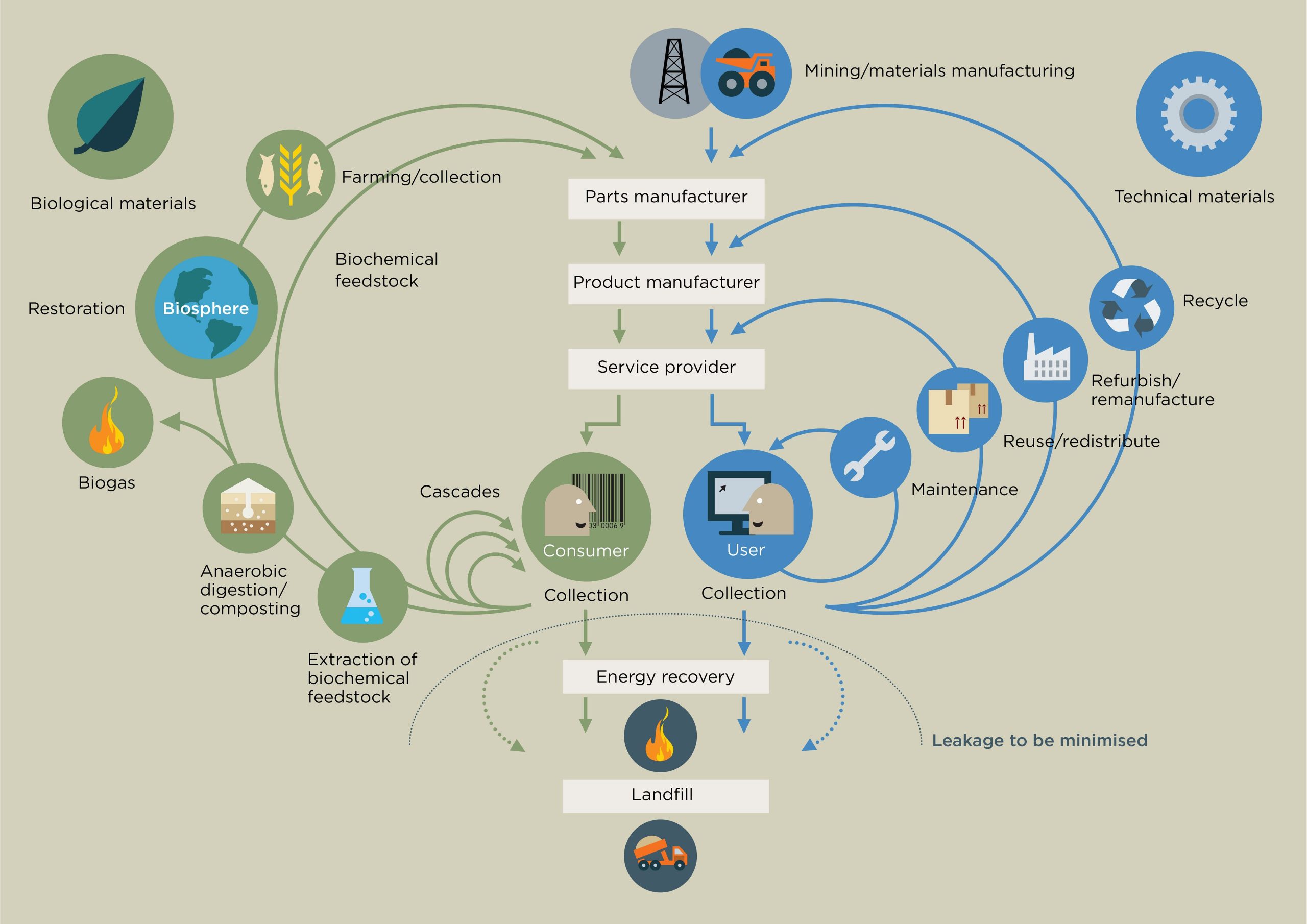Our present linear economy depletes global resources and fouls up the environment. The circular economy concept proposes an efficient alternative to maximise the utility and value of resources by closing loops, designing for reuse and recycling and generating less overall waste.
But how do we get there? The Leiden-Delft-Erasmus (LDE) alliance’s Centre for Sustainability invited four experts to present key aspects in a seminar to trigger debate on what is required to transition to this future scenario.
A circular economy requires changes in models of ownership, growth and business, and different kinds of design, consumption, regulation, finance and governance. “It means changing the DNA of our society,” said Wouter Spekkink, moderator and postdoctoral researcher at the Technology Policy and Management faculty.
Self-organisation
Marian Chertow, associate professor of Industrial Environmental Management at the Yale School of Forestry and Environmental Studies, cautioned that not everything benefits from a circular approach and small changes to a system can make things worse. Our current global system displays complex constantly adaptive characteristics emerging from simpler self-organised local behaviours and actions. We have no global control and the complex interdependencies of the system make it very difficult to intervene to ensure desired results and prevent damping or collapse.
Circular Economy business models
“Businesses need to experiment and challenge existing business models,” said Nancy Bocken, associate professor of Industrial Design and Engineering at TU Delft. Companies already apply circular business models seeking efficiencies in manufacturing and material reduction in products. But they should also slow resource loops, encouraging longer lifespans and sufficiency, and close loops by reusing and recycling resources.
Role of data
Arnold Tukker, professor of Industrial Ecology and director of the Institute for Environmental
Sciences (CML) in Leiden has researched global consumption using statistics for 200 product sectors in the national economies of the world. From this global viewpoint all developed countries have higher real land, water, material use and emissions footprints than their national figures suggest. Apart from putting national impacts into perspective, the model shows we are overshooting planetary resource boundaries.
Government
“I don’t believe getting to a circular economy will happen given the existing fabric of society,” said Frank Boons, professor of Innovation and Sustainability at the Sustainable Consumption Institute of the University of Manchester. Present national governments have less influence, function ineffectively and guided innovation will not change the fundamentals of society. Ideally government should support self- organising initiatives and provide inclusive security while countering oligopolistic and monopolistic market tendencies. It also should lead a debate to promote consuming less rather than recirculating resources.
Comments during the plenary discussion afterwards highlighted that the circular economy concept should also focus on ethics and social justice, not just economics and technology.



Comments are closed.